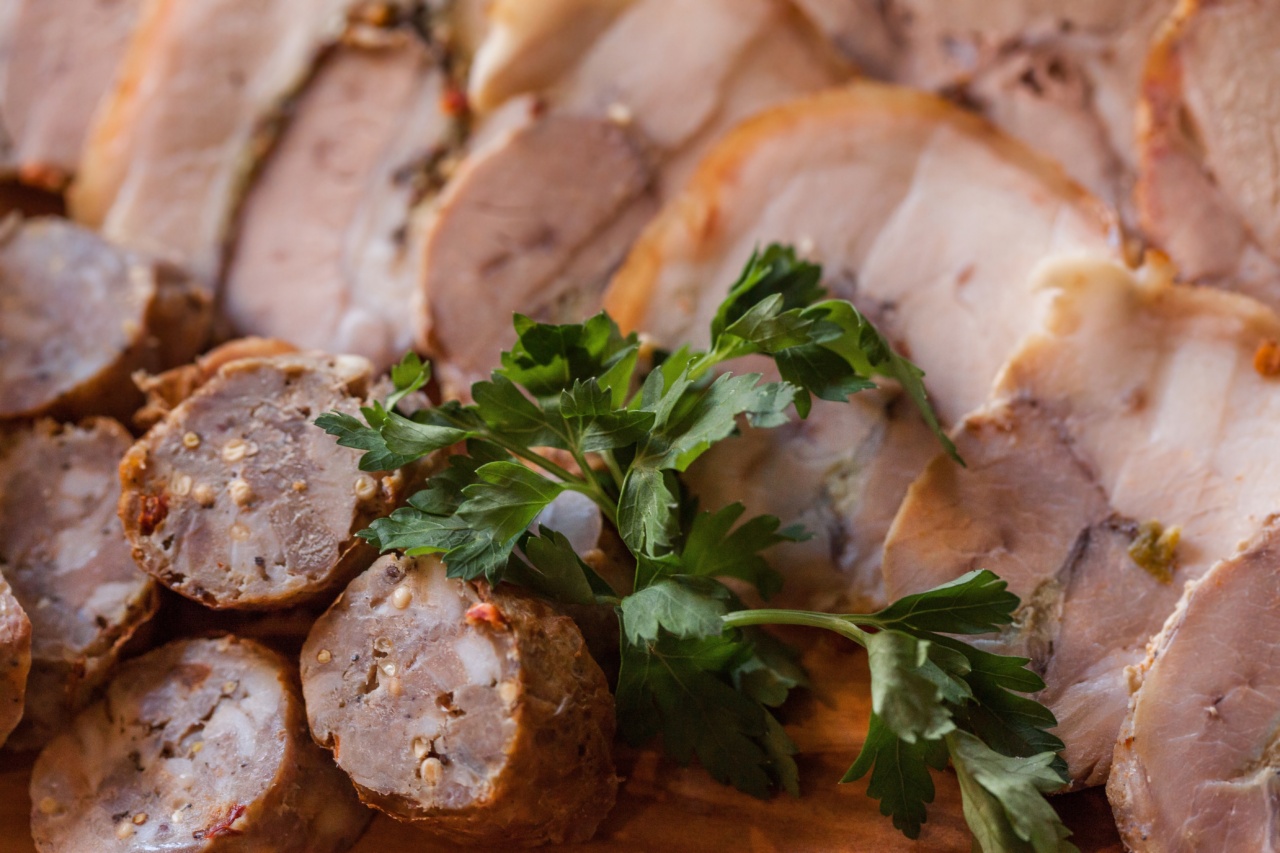When it comes to maintaining a healthy lifestyle, watching your saturated fat intake is crucial.
While it’s common knowledge that certain foods like burgers and pizza are high in saturated fat, there are many unsuspecting foods that also pack a punch in this department. In this article, we will delve into some lesser-known foods that can sneakily contribute to your saturated fat intake, potentially impacting your overall health.
It’s important to be aware of these hidden sources of saturated fat so that you can make informed choices about your diet.
1. Processed Meats
Processed meats such as sausages, hot dogs, and deli meats often contain high amounts of saturated fat.
These meats are usually made from parts of the animal that are high in fat, and they are also commonly preserved using techniques that increase their saturated fat content. To reduce your intake of saturated fat, consider choosing lean, unprocessed meats or opting for plant-based alternatives.
2. Full-Fat Dairy Products
While dairy products like milk, cheese, and yogurt are excellent sources of calcium and other essential nutrients, they can also be high in saturated fat. Some full-fat dairy products can contain up to 70% of their calories from saturated fat.
To minimize your saturated fat intake, opt for low-fat or non-fat versions of these dairy products.
3. Margarine
Margarine, often marketed as a healthier alternative to butter, can sometimes be high in saturated fat.
Margarine brands vary greatly in their composition, so it’s crucial to read the label and choose ones that are specifically low in saturated fat or made from heart-healthy oils.
4. Coconut Oil
Coconut oil has gained popularity in recent years for its many purported health benefits. However, it is important to note that coconut oil is predominantly composed of saturated fat.
While it may have some unique properties, moderation is key when incorporating coconut oil into your diet.
5. Store-Bought Baked Goods
Store-bought baked goods, such as pastries, cakes, and cookies, often contain high amounts of both trans fats and saturated fats. These fats not only contribute to weight gain but can also increase your risk of heart disease.
To satisfy your sweet tooth while reducing your saturated fat intake, consider making healthier homemade versions of these treats.
6. Fast Food French Fries
French fries from fast food chains are typically deep-fried in oils that are high in saturated fat. Additionally, the large portion sizes often served at these establishments can lead to excessive saturated fat intake.
Opting for homemade baked or air-fried versions can help drastically reduce the saturated fat content.
7. Salad Dressings
While salads are often deemed as a healthy choice, the dressings used to enhance their flavor can be loaded with saturated fat. Many store-bought dressings, particularly creamy ones, contain high amounts of added fats.
Consider making your own dressings using heart-healthy ingredients, such as olive oil and vinegar, to control the saturated fat content.
8. Commercially Prepared Soups
Ready-made soups, whether canned or from restaurants, are convenient options when you need a quick meal. However, they often contain added fats to enhance flavor and texture, including saturated fats.
Reading labels carefully and choosing low-sodium, reduced-fat options, or making homemade soups are healthier alternatives.
9. Crackers and Chips
Crackers and chips are popular snack choices, but many varieties contain high levels of saturated fat. Additionally, they are often high in sodium and unhealthy trans fats. Opt for whole-grain crackers or homemade baked chips as healthier alternatives.
10. Fast Food Burgers
Although it may come as no surprise, fast food burgers deserve a spot on this list due to their high saturated fat content. The fatty cuts of beef, cheese, and rich sauces all contribute to a hefty dose of saturated fat.
Limiting your consumption of fast food burgers and opting for homemade, leaner versions can greatly reduce your saturated fat intake.




























